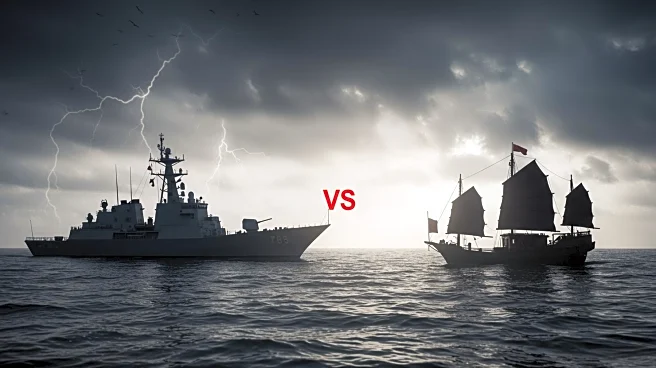What's Happening?
The United States and China have clashed at the United Nations over the influence exerted by China on the Panama Canal. During a U.N. Security Council meeting, Acting U.S. Ambassador Dorothy Shea expressed concerns about China's significant control over critical infrastructure and port operations in the canal area, suggesting it poses a threat to global trade and security. The Trump administration has pressured China to sell its interests in the canal to a U.S. consortium, including BlackRock Inc. Panama's President José Raúl Mulino emphasized the canal's neutrality and Panama's sovereignty over the waterway, rejecting any takeover attempts.
Why It's Important?
The dispute over the Panama Canal highlights the strategic importance of this key waterway in global trade and maritime security. The U.S. concerns about China's influence reflect broader geopolitical tensions between the two nations, particularly in regions critical to international commerce. The canal's control is vital for the transit of commercial and military vessels, and any shifts in its management could have significant implications for global shipping routes and economic stability. The clash at the U.N. underscores the ongoing competition between the U.S. and China for influence in strategic global locations.
What's Next?
The Trump administration's efforts to pressure China into selling its interests in the Panama Canal may lead to further diplomatic negotiations and potential changes in the canal's management. Panama's rejection of a takeover and its agreement with the U.S. to enhance security coordination could result in increased U.S. military presence in the region, sparking protests and geopolitical tensions. The international community will be watching closely for any developments that could impact global trade and security dynamics.
Beyond the Headlines
The clash over the Panama Canal raises questions about the ethical and legal aspects of international influence and control over critical infrastructure. The situation highlights the challenges faced by smaller nations like Panama in maintaining sovereignty amidst pressure from major global powers. Additionally, the dispute reflects broader issues of economic coercion and the balance of power in international relations.










